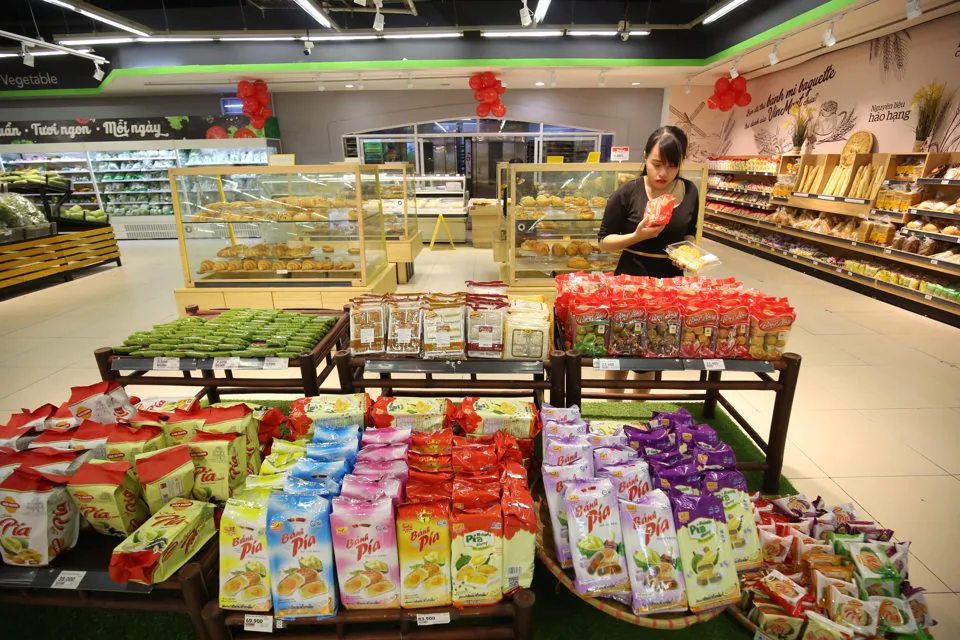Vietnamese Gov’t forecasts CPI growth of up to 4.5% in 2025
With the goal of at least 8% GDP growth, the money supply in the economy will be significantly larger than in 2024. This will have an impact on price indices, particularly consumer prices.
The Ministry of Finance (MoF) predicts inflationary pressure this year from market fluctuations, especially for essential goods and state-regulated items, with the CPI projected to rise 3.83%-4.5% under three scenarios.
| Local at a supermarket. Photo: Pham Hung/The Hanoi Times |
The figures were revealed at a Government meeting on price management held on February 6.
The government has set a target for GDP growth of at least 8% this year, to achieve double-digit growth in the coming years. Meanwhile, inflation in 2025 is expected to be around 4.5%, according to a resolution by the National Assembly.
At the meeting, Deputy Prime Minister Ho Duc Phoc stated that with the goal of at least 8% GDP growth, the money supply in the economy will be far larger than in 2024. This will have an impact on price indices, particularly consumer prices.
Sharing the same view, Deputy Minister of Finance Le Tan Can emphasized the need to control inflation to mobilize resources to achieve the highest possible economic growth.
The MoF forecasts that price regulation this year will face pressure from the market, especially for essential goods and services such as fuel, construction materials, food, and state-regulated items. The ministry has outlined three inflation scenarios, projecting the average Consumer Price Index (CPI) increase to range from 3.83% to 4.5%.
"Price regulation and inflation control must remain cautious and flexible this year," Can said, adding that authorities will focus on price stabilization to ensure stable production and livelihoods. Ministries, sectors, and local governments are urged to coordinate closely and proactively propose regulatory measures, especially for essential goods and public services under market-based pricing roadmaps.
Among the three inflation scenarios presented by the Ministry of Finance, the deputy prime minister recommended selecting the scenario in which the average CPI rises by approximately 4.15% compared to 2024.
"Price regulation must be proactive, specific, and effective," Phoc said, instructing ministries to develop quarterly price management scenarios for state-regulated goods.
Phoc requested the Ministry of Finance and the General Statistics Office to devise plans and advise the government on feasible regulatory measures.
For state-controlled commodities, ministries are required to adjust prices according to appropriate schedules and levels. At the same time, market inspections and supervision must be strengthened to prevent supply shortages and sudden price spikes.
Another issue raised by Deputy Prime Minister Phoc was the amended Price Law, which took effect in July 2024 but has not been strictly enforced. He cited cases such as a bowl of pho selling for US$40 during the Lunar New Year or businesses having their licenses revoked for price violations. "Prices must be clearly listed and sold according to the listed prices," Phoc stressed.
The deputy prime minister emphasized that pricing regulations must be strictly implemented to maintain a fair competitive environment and prevent price manipulation or artificial inflation. The MoF has been tasked with advising the prime minister on issuing a directive for immediate and strict enforcement of these regulations.
"The issue is not whether something is expensive or cheap, but that prices must be transparent so that consumers can make informed choices and sellers cannot exploit customers for excessive profits," Phoc added.












